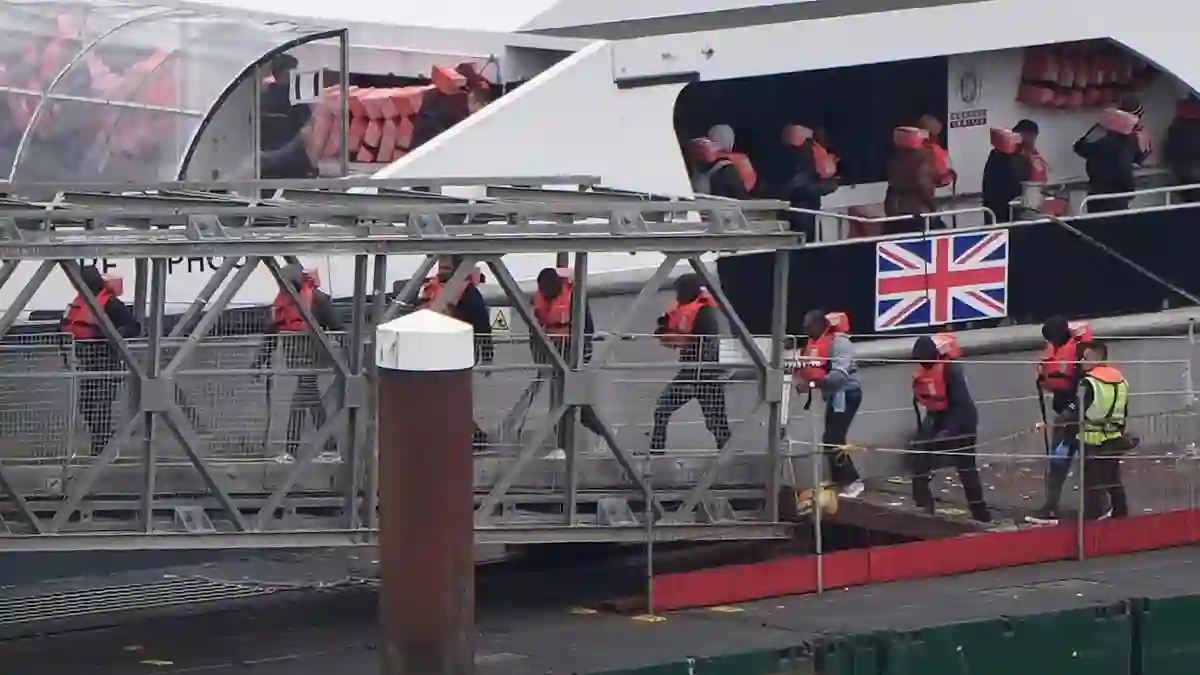While politicians in Westminster debate over new laws and dramatic language, the reality playing out along the beaches of northern France paints a very different picture.
After spending time observing the early-morning rushes on the dunes near Calais, it’s clear who’s really boarding those inflatable boats: mostly young men, not the vulnerable women and children often cited in speeches and headlines.
The Government’s Tough Talk Doesn’t Match Ground Reality
Home Secretary Yvette Cooper recently announced plans to introduce new laws targeting people smugglers, voicing concern about the risk to women and children being “crushed at sea.”
She even suggested that those who storm overcrowded boats are complicit in endangering lives.
But the facts on the ground don’t seem to back up that narrative—because in many cases, there aren’t women and children to begin with.
Instead, every morning on those French beaches, it’s groups of fit, adult men who sprint across the sand to climb aboard small, overcrowded vessels.
The scenes are a far cry from the image of desperate families seeking refuge, and it raises serious questions about who exactly these new laws are meant to protect—and from what.
Why Write New Laws When Old Ones Are Being Ignored?
And here’s the big question: do we even need more legislation? According to current French and British maritime laws, the authorities already have the tools to crack down on illegal boat operators.
In France, the Transport Code strictly prohibits unlicensed navigation—with significant fines and even jail time.
Anyone caught driving a boat without the proper paperwork could face six months in prison, especially if they’re carrying passengers.
Britain has similar rules. The Merchant Shipping Regulations cover passenger vessels—anything carrying over a dozen people.
Yet every migrant boat making the Channel crossing carries far more than that.
So again, why are these skippers getting a free pass?
Shadow Ministers and Reformers Agree It’s Obvious Who’s in Charge
Even politicians on the opposition side aren’t buying into the need for shiny new legislation.
Shadow Home Secretary Chris Philp put it bluntly: “Anyone seen with their hand on the tiller should go straight to prison.”
Reform Party leader Nigel Farage chimed in too, pointing out that identifying the driver isn’t hard—he’s got plenty of photographs of them himself.
As they see it, there’s already a long list of regulations for any ordinary person who dares take a private boat out to sea. France, in particular, has stricter maritime rules than the UK.
So again, the big mystery remains—why aren’t the rules being enforced?
French Silence and British Evasion Keep the Loophole Wide Open
Here’s something telling. After contacting the French authorities a week ago to ask why these unlicensed skippers aren’t being prosecuted, not a single response came back.
On the UK side, the Department for Transport and the Home Office were also asked whether anyone has been charged in the past year for violating maritime law.
The DfT eventually responded, referencing international safety standards and saying Border Force handles enforcement once boats reach the UK.
The Home Office, on the other hand, stayed completely silent.
“Enforcement” Just Means a Free Ride to a Warm Hotel
If this is what enforcement looks like, then it seems the main outcome for those caught is a free trip to a hotel like The Bell in Epping—not quite the deterrent one might expect.
Real consequences, like fines or prison time, are conspicuously absent.
Sure, cracking down on boat drivers won’t fix everything overnight.
But if those at the helm knew they’d be facing jail time and automatic deportation, how many would still be willing to rev the engine and set off across the Channel?
As Long as There’s a Blind Eye in France and a Soft Touch in Britain, the Problem Will Continue
At the end of the day, until French police stop waving off these makeshift captains and the UK stops welcoming them ashore without legal consequences, nothing’s going to change.
The laws already exist. The question is—does anyone actually want to use them?

